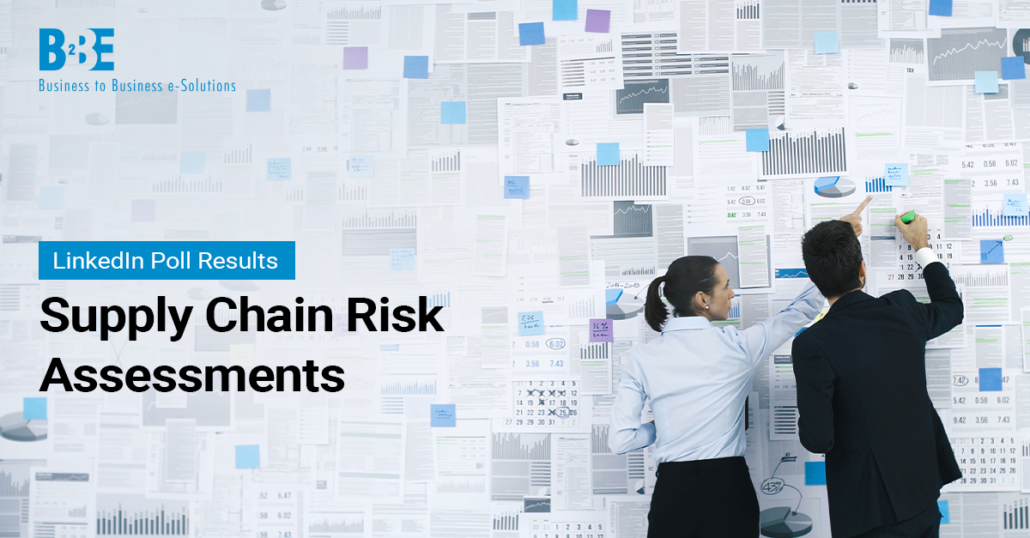The Covid-19 pandemic has had a profound impact on businesses worldwide, forcing them to adapt to an entirely new way of operating. As companies navigate this new landscape, they are increasingly recognising the importance of a supply chain risk assessment. The disruption caused by the pandemic has highlighted the vulnerability of global supply chains. As a result, companies are now looking to conduct supply chain risk assessments more often.
A supply chain risk assessment is a crucial step in identifying and mitigating potential risks that could impact the delivery of goods and services. It involves analysing various aspects of the supply chain, such as suppliers, transportation, and logistics. This is to identify vulnerabilities and areas that require improvement. With the pandemic highlighting the importance of supply chain resilience, businesses are now more motivated than ever to conduct regular assessments. Particularly to ensure their operations remain resilient in the face of future disruptions.
Poll results
In our most recent LinkedIn poll, we asked our social media followers if their businesses were conducting supply chain risk assessments more often in the post-Covid world.
Supply chain risk assessments: what we found
Yes, we’re doing more – 83%
The fact that 83% of respondents answered “Yes, we’re doing more” is a positive development for several reasons.
Firstly, increased frequency of risk assessments indicates that companies are recognising the importance of proactive risk management. By conducting regular assessments, businesses are better equipped to identify potential risks and take necessary measures to mitigate them. This approach can prevent costly disruptions and help businesses maintain continuity in their operations.
Secondly, increased focus on risk management can lead to greater resilience in supply chains. By identifying potential risks and vulnerabilities, companies can work to strengthen their supply chains and build in redundancies to ensure continuity of operations. This can help businesses better weather unforeseen disruptions and ensure timely delivery of goods and services to customers.
Finally, increased attention to risk management can enhance transparency and collaboration in supply chains. By involving key stakeholders in risk assessment processes, businesses can foster open communication and collaboration. This can lead to improved supply chain performance and efficiency.
Around the same amount – 17%
While 83% of our poll respondents reported conducting more frequent supply chain risk assessments in the post-Covid world, 17% answered that they are conducting around the same amount. Although a smaller percentage, it is still worth exploring why some businesses are not increasing their risk assessment frequency.
There could be several reasons why companies are not conducting more frequent risk assessments. One possibility is that these businesses were already conducting regular risk assessments before the pandemic. Therefore, they may feel that their existing risk management strategies are sufficient to address the challenges posed by Covid-19.
Another possible explanation is that some businesses may lack the resources or expertise to conduct more frequent risk assessments. For smaller businesses, dedicating time and resources to risk management can be challenging. Especially in the current economic climate where businesses are facing additional financial pressures.
However, even if a business is conducting risk assessments at the same frequency, they may still be adapting their approach. Particularly to account for the new risks introduced by Covid-19. For example, a business may be assessing different types of risks. Or focusing on different areas of their supply chain to ensure resilience in the face of the pandemic.
No, we’re doing fewer – 0%
0% of respondents reported conducting fewer risk assessments in the post-Covid world. This is a positive sign that companies are not taking risk management lightly and are recognising the importance of maintaining proactive measures during these uncertain times.
The pandemic has highlighted the potential for unforeseen disruptions in supply chains, and businesses have seen first-hand the importance of having effective risk management strategies in place. By conducting regular risk assessments, businesses can identify and address potential vulnerabilities in their supply chains, leading to greater resilience and continuity of operations.
And, many businesses have realised that supply chain risk management is not just about mitigating risks, but also about identifying new opportunities for improvement. By conducting more frequent risk assessments, businesses can gain a deeper understanding of their supply chains, which can lead to improvements in efficiency, productivity, and customer satisfaction.
More information
B2BE’s experience in the supply chain sector allows our customers to build, expand and adapt successfully, enabling greater effectiveness. To engage with B2BE and offer feedback on what matters most to you and your business, make sure to follow us on LinkedIn and across social media. You can also vote in our latest LinkedIn poll. If you’d like to discuss your supply chain strategy, get in touch with us.
